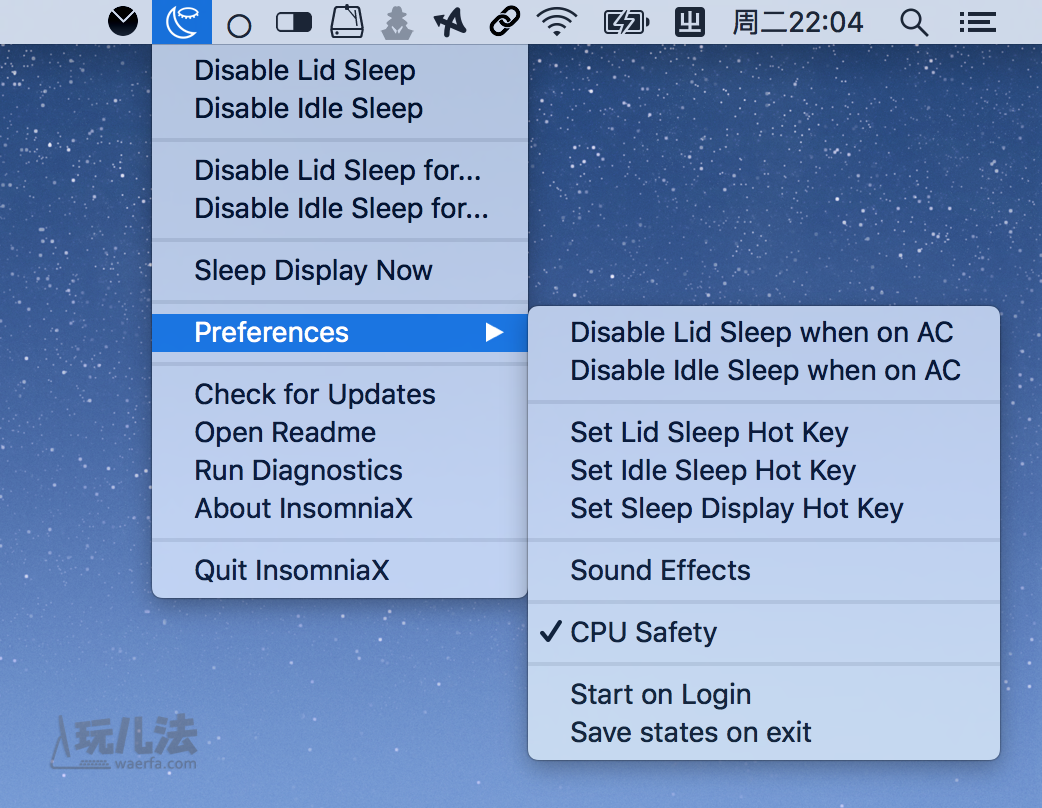
Now that the application cleanup is complete, you can view a log of the removed items, or go back to your app list to uninstall more.Click on Uninstall or choose Application Reset at the top.Select the, you can either uninstall it or, if it’s not acting as it should, you can perform an Application Reset.Launch CleanMyMac X and click on Uninstaller in the left menu.One thing makes Cisdem outperform its competitors is its high quality OCR performance:accurate OCR results and maintained original formatting.
Insomniax windows alternative pdf#
Cisdem PDF Converter OCR is a dedicated Mac OCR software to convert and create PDF, also perform OCR on scanned documents or images to make them editable & searchable.

Files can be saved in the DjVu format in its version 11. Add the & character to the end of the line and it will spawn a subprocess to run caffeinate which allows you to continue using the same terminal window for other stuff, although it's probably best to just use another tab for that. To stop it and allow sleep again just enter: ctl-c. This program allows its users to convert image documents (photos, scans, PDF files) into a format that can be easily edited. you can close the lid and it won't go to sleep. ABBYY is the company that has made this software to be used by people.

The NCCAM recommends that patients tell their doctors about any use of complementary or alternative medicine to allow for complete medical records.Ībout 60% of survey participants said they had told their doctor about their use of complementary or alternative therapies for their insomnia, the study shows.FineReader is an OCR Software that is used both by Windows and Mac OS. The findings are "interesting" and deserve more study, but don't scientifically prove effectiveness, the researchers note. However, more than half said that their complementary or alternative therapy was "very important to maintaining their health and well-being." The study doesn't show participants' satisfaction rate for other complementary or alternative approaches to insomnia. Nearly half of those who used herbal therapies or relaxation therapy said they felt that their therapy had helped their insomnia "a great deal," the researchers write. Participants with insomnia who reported using complementary or alternative medicine were asked if they thought their treatment had helped them sleep. Nearly 40% said they tried mind-body therapies.Īs those numbers show, some participants apparently tried both biological and mind-body therapies. That translates to 1.6 million people in the general public, Pearson's team notes.Īlmost two-thirds of survey participants who tried complementary or alternative medicine used biologically based therapies (including herbs and vitamins). Nearly 5% of participants with insomnia said they had tried complementary or alternative medicine to help them sleep. Participants with insomnia were asked if they had used complementary or alternative medicine in the previous year.Ĭomplementary and alternative medicine was defined as including vitamins, herbs, massage, and mind-body practices such as meditation, yoga, biofeedback, and hypnosis. Insomnia was more common among women than men, and among people who were obese or had high blood pressure, congestive heart failure, anxiety, or depression. That equals more than 35 million people in the general public, the researchers calculate. One of survey questions was, "During the past 12 months, have you regularly had insomnia or trouble sleeping?" About 17% of participants said "yes." adults from a 2002 government health survey. Pearson's team checked data on more than 31,000 U.S. Those figures come from Nancy Pearson, PhD, and colleagues at the National Center for Complementary and Alternative Medicine (NCCAM), part of the National Institutes of Health. adults regularly had insomnia in 2002, and 1.6 million of them tried complementary or alternative therapies to get some sleep. 18, 2006 - Many Americans toss, turn, and try complementary and alternative medicines to ease insomnia.


 0 kommentar(er)
0 kommentar(er)
